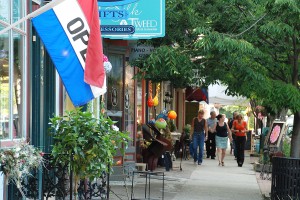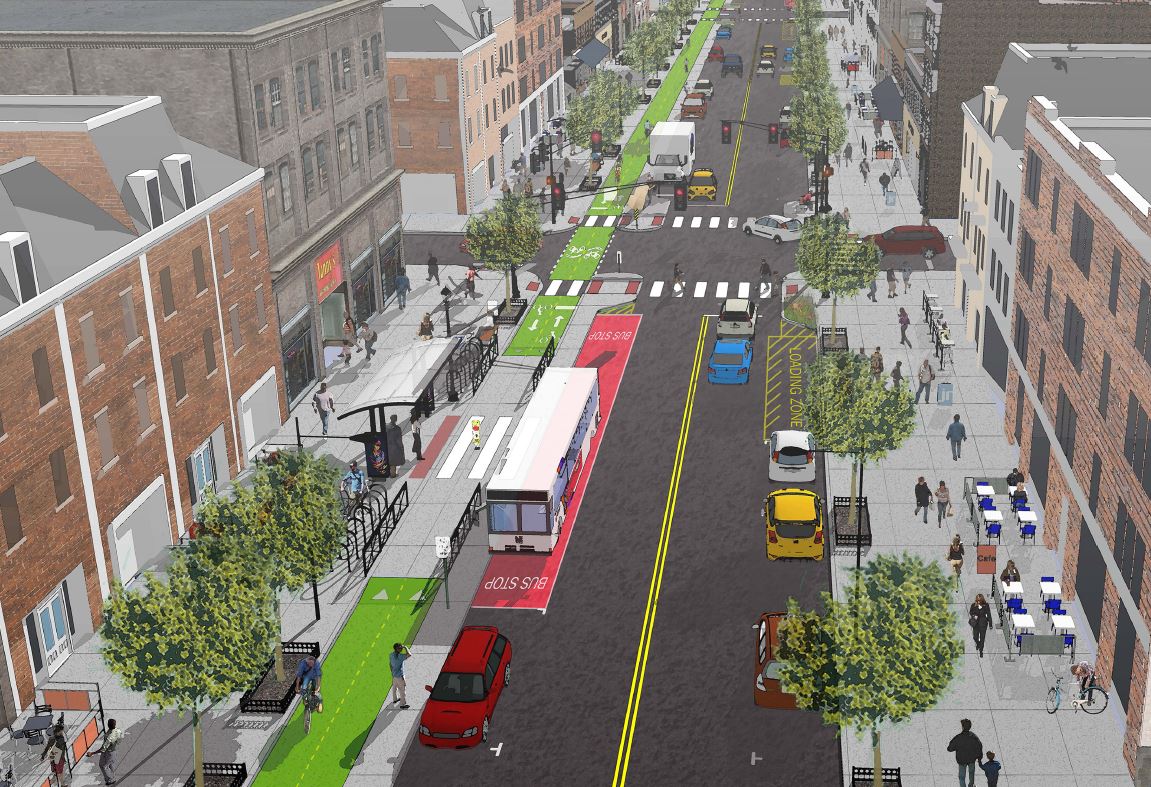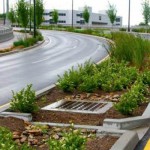New Jersey Future Blog
Millennials, ‘Alternative’ Economy Shape Downtown Redevelopment Trends
June 15th, 2015 by Lauren Bolline
Downtown New Jersey’s annual conference on June 11 had a strong focus on the development of small to medium-size downtowns, particularly through the help of Special and Business Improvement Districts (SIDs and BIDs). The conference was appropriately held in downtown Rahway, which provides a unique perspective on the opportunities and challenges in redeveloping downtowns.
Kennedy Smith, president of Community Land Use and Economics (CLUE) Group, who gave the keynote presentation, highlighted the strength of these smaller markets when she pointed out that national retailers are starting to move back to them. “National retailers are not risk takers,” she said. “They are market followers, not leaders.”
Smith identified two major factors currently affecting downtowns:
- Millennials, a population that wants walkable, vibrant communities accessible to transit. Millennials have been found to prefer repairing and reusing things to throwing them away, and investing in things that last longer and are more sustainable even if it has a higher cost. They often live where they work, and are interested in interactivity and social connection. Downtowns can take advantage of this by offering creative interactive spaces, perhaps using vacant stores, and using technology to gather and geocode ideas and opinions.
- The alternative economy: This includes sharing resources, outsourcing skills via the Internet, and crowdfunding to launch businesses. Communities should foster worker-owned co-ops, credit unions, farmers’ markets, and sharing platforms and businesses. Simply putting a blackboard in front of a vacant building and asking people for memories and ideas about it can be an interactive way to develop a community vision for a site.
Downtowns have always had a healthy mix of uses, Kennedy pointed out, despite people’s perception that most downtowns have historically comprised primarily retail. (In 1945, Kennedy pointed out, only 18 percent of downtown businesses were retail.) Today, she said, we need to focus on bringing entertainment value to our downtowns through restaurants and community spaces. Small-scale manufacturing can also play a role in utilizing downtown spaces.
Communities have been trying different approaches to financing the redevelopment of their downtowns, including such creative incentives as loans at reduced interest rates, using block grant money to help businesses stay financially afloat in their first operating years, tax incentives, development limits based on retail capacity, development impact fees, demolition bonds so that lots can be returned to community space if vacant, location-based property taxes, and place-based mortgage-interest deductions.
New Jersey Future has identified downtown revitalization as one of its primary focus areas for 2015. In October 2014 it partnered with JGSC Group, a downtown economic-development consulting firm, to survey downtown management executives across New Jersey on where they see their greatest needs and opportunities. A summary of the survey results is here. Going forward, New Jersey Future is developing a program to work with municipalities interested in advancing downtown economic development and redevelopment strategies.


















I’m loving the focus on downtown development. That’s really the future of New Jersey; people aren’t clamoring to move the suburbs and shop at suburban strip malls like they were in the middle to late 20th century. New Jersey is at a particular disadvantage regionally, considering so much of our development has been of the strip mall and tract housing variety over the past 60 years. And I can tell you as a millennial that absolutely none of either my friends or my wife’s friends have bought new homes in distant suburban towns. We’re living close to historical town centers and near public transit. Getting back to reinvesting in the states historical town centers is absolutely what will help us compete in the 21st century.